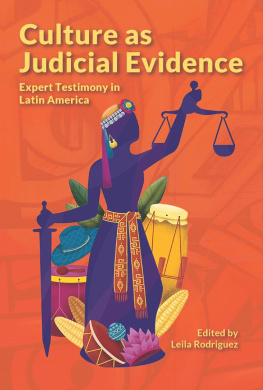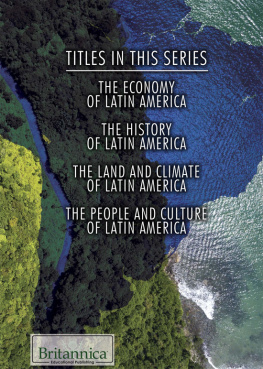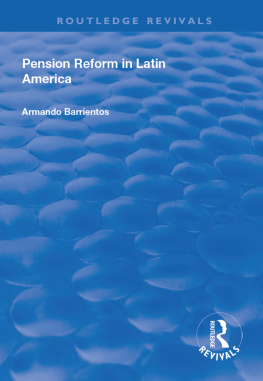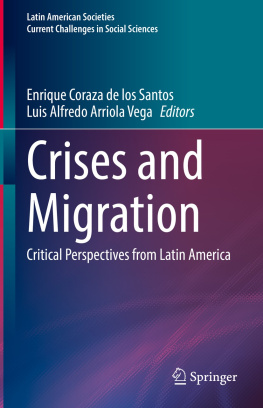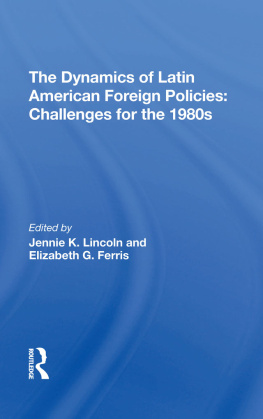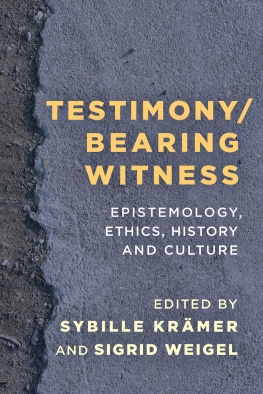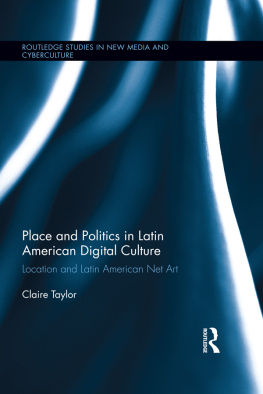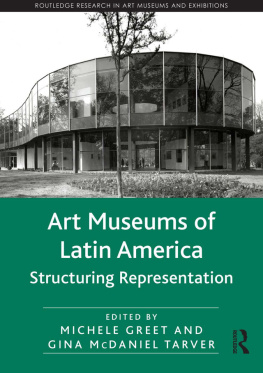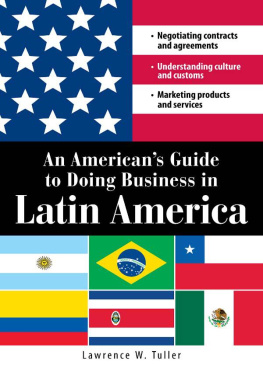About the University of Cincinnati Press
The University of Cincinnati Press is committed to publishing rigorous, peer reviewed, leading scholarship accessibly to stimulate dialog between the academy, public intellectuals and lay practitioners. The Press endeavors to erase disciplinary boundaries in order to cast fresh light on common problems in our global community. Building on the universitys longstanding tradition of social responsibility to the citizens of Cincinnati, state of Ohio, and the world, the press publishes books on topics which expose and resolve disparities at every level of society and have local, national and global impact.
University of Cincinnati Press, Cincinnati 45221
Copyright 2021
All rights reserved. No part of this book may be reproduced or utilized in any form or by any means, electronic or mechanical, or by any information storage and retrieval system, without written permission from the publisher. Requests for permission to reproduce material from this work should be sent to University of Cincinnati Press, Langsam Library, 2911 Woodside Drive, Cincinnati, Ohio 45221
ucincinnatipress.uc.edu
Rodriguez, Leila, editor.
Culture as judicial evidence: expert testimony in Latin America / edited by Leila Rodriguez.
Cincinnati: University of Cincinnati Press 2019. | Includes bibliographical references.
LCCN 2019020162 | ISBN 9781947602632 (paperback) | ISBN 9781947602649 (pdf) | ISBN 9781947602656 (epub)
LCSH: Evidence, Expert--Latin America. | Law and anthropology--Latin America. | Culture and law--Latin America.
LCC KG514 .C85 2019 | DDC 346.8/067--dc23
LC record available at https://lccn.loc.gov/2019020162
ISBN 978-1-947602-63-2 (paperback)
ISBN 978-1-947602-64-9 (e-book, PDF)
ISBN 978-1-947602-65-6 (e-book, EPUB)
Designed and produced for UC Press by Alisa Strauss
Typeset in Lato and Baskerville 120 Pro
Printed in the United States of America
First Printing
This book is dedicated to the life and work of Drs. Marcos Guevara Berger and Ivn Rivasplata Caballero.
List of Acronyms
ADI: Integral Development Agency (Costa Rica)
AIC: American Immigration Council (United States)
AIDESEP: Interethnic Association for the Development of the Peruvian Rainforest (Peru)
ANI: Chilean National Intelligence Agency (Chile)
ARADIKES: Dikes Aboriginal Regional Association (Costa Rica)
BIA: Board of Immigration Appeals (United States)
CAIMP: Center for Intercultural Affairs, Communities, and Peasant Patrols (Peru)
CAM: Coordinadora Arauco Malleco (Chile)
CIA: Central Intelligence Agency (United States)
CDU: Sole Disciplinary Code (Colombia)
CeDeHM: Center for Human Rights of Women (Mexico)
CIACS: Illegal Clandestine Security Apparatuses (Guatemala)
CICAJ: Center of Inquiry, Training, and Legal Advice (Peru)
CICIG: International Commission Against Impunity in Guatemala
CID Sur: Center for Research and Defense of the South (Chile)
CONADI: National Corporation for Indigenous Development (Chile)
CONAP: Confederation of Amazon Nationalities of Peru (Peru)
DEMI: Ombudsman for Indigenous Women (Guatemala)
DESC: International Covenant of Economic, Social and Cultural Rights (Mexico)
DHS: Department of Homeland Security (United States)
DOJ: Department of Justice (United States)
DOS: Department of State (United States)
DPM: Mapuche Criminal Defenders office (Chile)
DPP: Office of the Public Defender of Chile (Chile)
EOIR: Executive Office for Immigration Review (United States)
EZLN: Zapatista Army for National Liberation (Mexico)
FAI: Prosecutors Office for Indigenous Issues (Costa Rica)
FECODE: Colombian Federation of Educators (Colombia)
FONAFIFO: Forestry Financing Fund of Costa Rica (Costa Rica)
FPIC: Right to free, prior and informed consultation (International Labor Organization)
FUNCOL: Foundation of Colombian Communities
FUNDEPBLICO: Foundation for the Defense of the Public (Colombia)
GAEDS: Sexual Diversity Study and Support Group (Colombia)
GHRC: Guatemalan Human Rights Commission
IACHR: Inter-American Commission on Human Rights
ILCO: Lutheran Church of Costa Rica
ICBF: Colombian Family Welfare Institute
ILO: International Labor Organization
IML: Institute of Legal Medicine and Forensic Science (Peru)
IMF: International Monetarian Fund
INAH: National Institute of Anthropology and History (Mexico)
IWGIA: International Work Group for Indigenous Affairs
NIC: National Intelligence Council (United States)
NIJC: National Immigrant Justice Center (United States)
OAS: Organization of American States
ODHAG: Guatemalan Archbishopric Office of Human Rights
ONIC: National Indigenous Organization of Colombia
ORR: Office for Refugee Resettlement (United States)
PANI: National Child Welfare Agency (Costa Rica)
PARCOMUN: Organization for Community Participation (Colombia)
RELAJU: Latin American Legal Anthropology Network
REDD+: reducing emissions from deforestation and forest degradation programme
SAI: Secretary of Indigenous Affairs (Mxico)
SEPREM: Presidential Secretariat for Women (Guatemala)
TDCC: Customary Law Tribunal of Cabagra (Costa Rica)
UNAIDS: Joint United Nations Programme on HIV and AIDS
UNHCR: United Nations High Commissioner for Refugees
UNICEF: United Nations Childrens Emergency Fund
USCIS: United States Citizenship and Immigration Services

